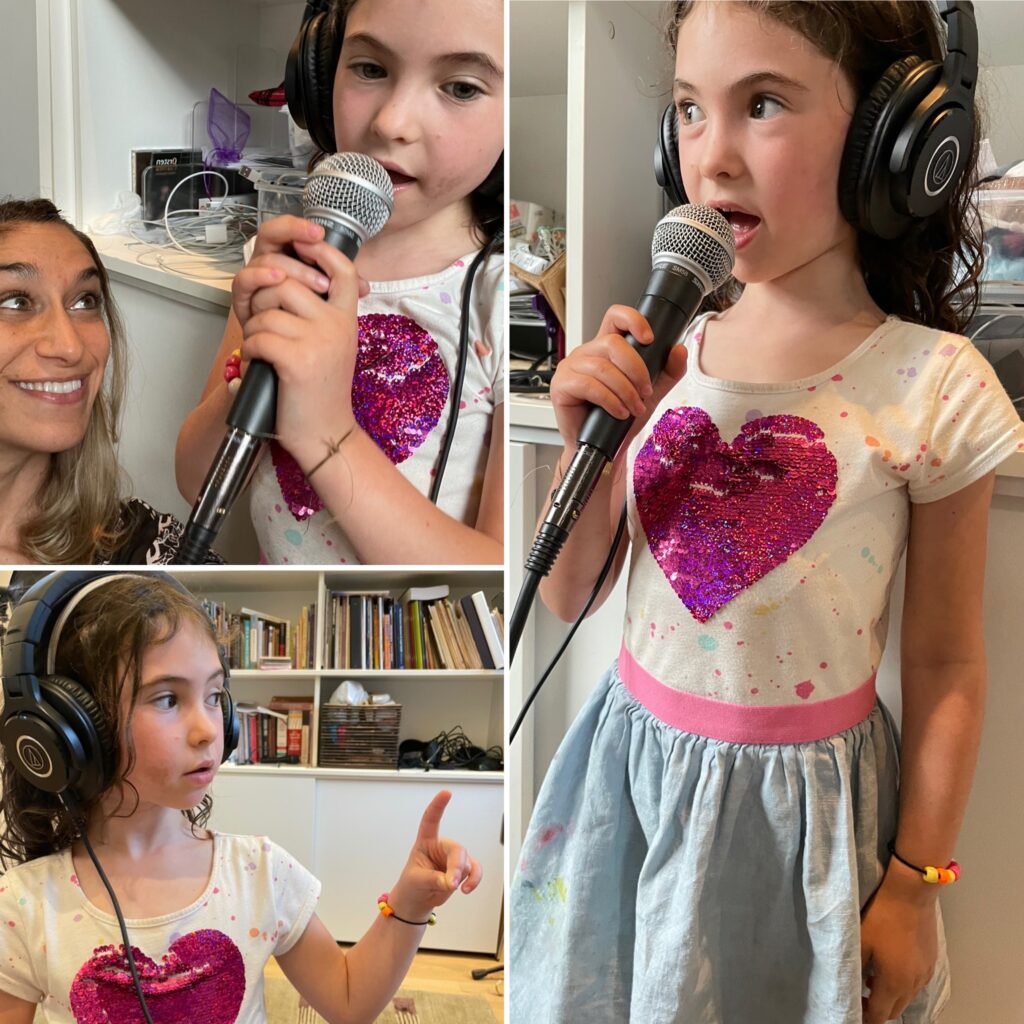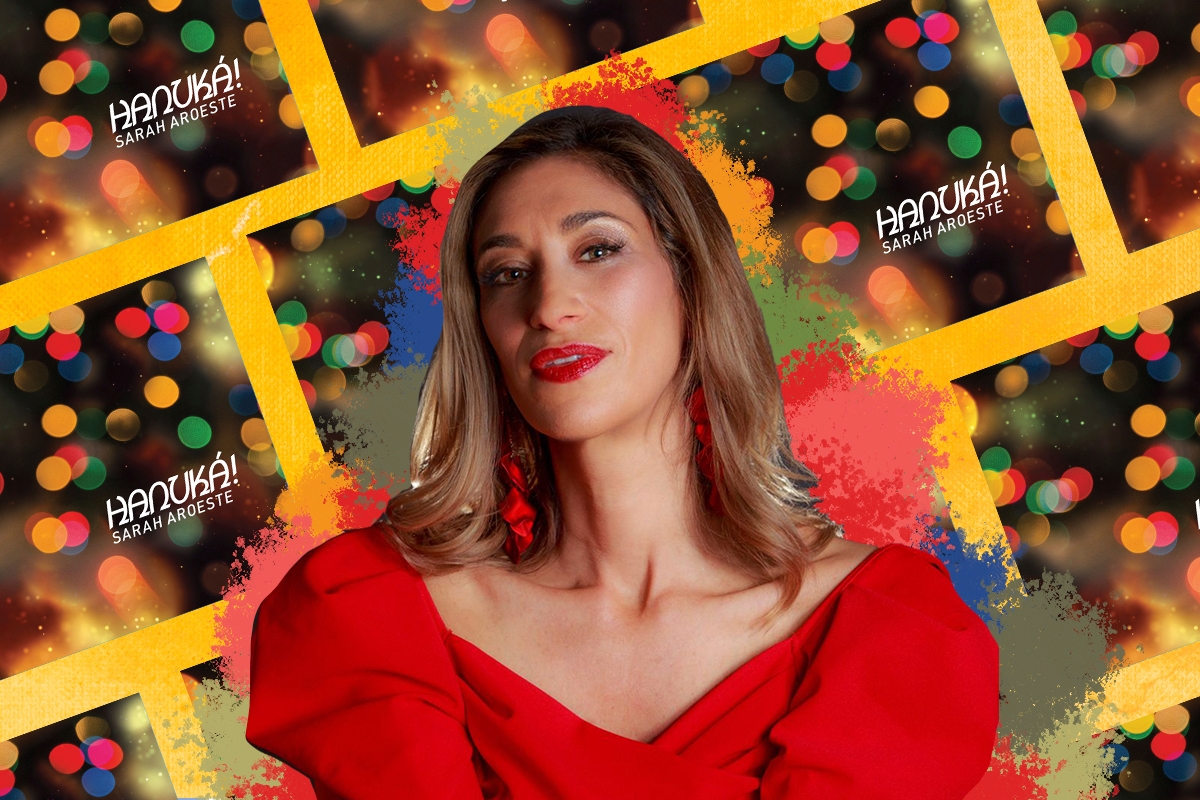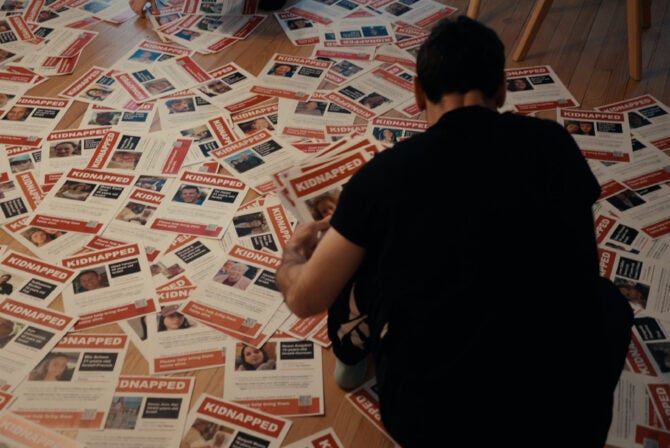Sarah Aroeste is many things: mother, singer, musician, composer, author, educator, Sephardic cultural activist. And this month, as Aroeste gets ready to drop the world’s first-ever all-Ladino Hanukkah album, we can add “history-maker” to that list.
“It’s all about light and joy,” says Aroeste, who has managed to put out two new albums during the pandemic (quite a Taylor Swift-ian work ethic!). The first was “Monastir,” a poignant tribute to the Jewish community of North Macedonia, which was released in June 2021 to broad acclaim and won “Best Jewish Album” at the 5781 Alma awards for Jewish pop culture. Now, Aroeste is preparing to release “Hanuká!” which will be out on November 19 — in plenty of time for this year’s earlier-than-usual start to the Festival of Lights. Both of these groundbreaking albums, produced by Shai Bachar, are the result of collaboration with dozens of singers and musicians around the world.
From board books for babies to middle-grade novels, animated videos to Carnegie Hall performances, Aroeste is constantly innovating in order to showcase contemporary Sephardic culture on as many platforms as possible. The purpose driving all of these projects is to increase interest in, and connection to, her ancestral language of Ladino (also known as Judeo-Spanish and Djudezmo). She explains to Kveller, “My be-all and end-all is to make Sephardic culture and especially Ladino more accessible to young families. And how do you do that? It’s with joy.”
If any Ladino Hanukkah song has penetrated mainstream culture so far, it’s “Ocho Kandelikas” (“Eight Little Candles”). Written by the Bosnian-born Sephardic singer Flory Jagoda, the song has been covered by everyone from Pink Martini to Idina Menzel (who offered a “sexy” version two years ago) to the Josh Nelson Project, who turned it into an adorable video about counting. Jagoda passed away this past January at the age of 97, after a storied career dedicated to sharing the Ladino language and commemorating her family who perished in the Holocaust. Aroeste, who calls Jagoda “one of my greatest mentors,” offers a Spanish flamenco-style “Ocho Kandelikas” on her new album, in tribute both to Jagoda’s incredible legacy and to the Andalusian origins of Sephardic Jews.
This thoughtfulness is reflected in every aspect of “Hanuká!,” whose glowing cover design is meant to portray the sense of light, life, and warmth that Ladino can embody. “As a Ladino singer,” Aroeste says, “I felt empowered to show people that there are many joyful Hanukkah songs in Ladino. I really wanted to boost some of the traditional songs and also highlight work being done by colleagues around the world.” She located some true gems from Sephardic writers past and present — including many women — and also contributed two original compositions to the mix.
She tells me that our current late-pandemic moment was part of the album’s genesis: “My inspiration was twofold. Last year, Hanukkah during the pandemic took on a new meaning; I feel that people recognized the joy of the holiday in a new way. I was finding repertoire for all these different Zoom concerts I’d been invited to, and by the end of Hanukkah I was filled with so much joy. I thought, ‘I want to bottle this! I want to remember this feeling and turn it into an album.’”
I got early access to Aroeste’s new tracks (the perks of being a journalist!) and can report that “Hanuká!” will be a wonderful addition to any family’s holiday festivities. My personal favorite is probably “Vayehi Mikets” (“And It Was at the End”), a retelling of the Pharoah-Joseph story that — twist! — involves bimuelos, the Sephardic fried dough treats that give latkes a serious run for their money. I also love the album-closer “Dak il Tas” (“Beat the Plates”), which serenades the Shabbat that falls during Hanukkah and includes gorgeous instrumentation on the santur, a Persian lap harp.
While all the tracks are fun and family-friendly, Aroeste says her own kids are particular fans of the fourth track, a bop called “Fiesta de Hanuka.” The lyrics to the song are actually the traditional Hebrew blessings over the candles translated into Ladino. She explains that this song sprang from personal motivation: “I wanted my own ritual to do with my family, to make it more inclusive and fun. I love when my kids can say brachas (blessings) on their own; that is such a tremendous moment as a parent. That’s when we kvell, right?”
And speaking of kvelling, “Hanuká!” marks the first time that Aroeste’s daughters, now ages 6 and 8, join in on one of her recordings! The girls contribute backing vocals on “Hanuka, Hanuka,” a lesser-known but wonderful holiday song written by Flory Jagoda. Mashala (congrats) to these young superstars on their debut!

Via Sarah Aroeste
Want to get in on the “Hanuká!” excitement? Pre-orders and holiday gift bundles are already available on Aroeste’s website, where you can get a sneak peek of the music and also browse adorable merch for kids (like a “Ladino Rocks” bib) and grown-ups (the festive socks are definitely going on my wish list!). You can also register for Aroeste’s “Hanuká!” extravaganza happening on November 21, which will include a bimuelos cook-along, live music and more. And stay tuned: In 2022 Aroeste is slated to publish another children’s book, “Mazal Bueno,” which will be about the different milestones that a baby reaches.
So, even though we may be stuck lighting the menorah over Zoom again this year, thanks to Sarah Aroeste we’ll have a batch of new, festive tunes to help us celebrate in Sephardic style. (Of course, no disrespect to “I Have a Little Dreidel” and “Puppy for Hanukkah” — there’s room on our playlist for all the songs.) As Aroeste says, “Good Hanukkah music is good Hanukkah music. It doesn’t matter what language it’s in — mine just happens to be in Ladino!”








